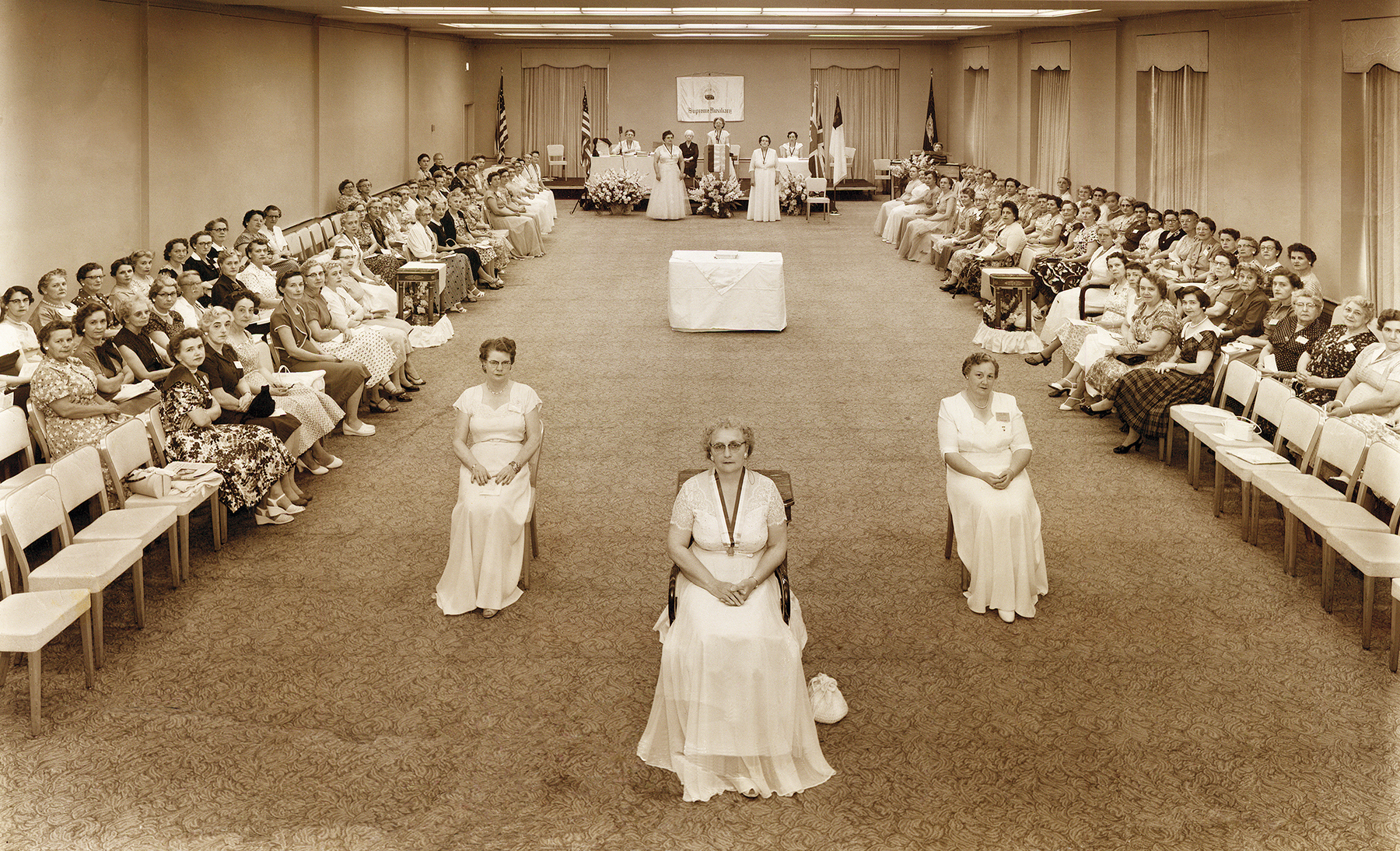March is women’s history month in the U.S., a time to celebrate the accomplishments and diversity women have brought to the world, a time for women everywhere to note how far we have come and how much further we still need to go to make sure our daughters, granddaughters and great-granddaughters have the best opportunities available to them.
It might seem odd for a fraternal organization to talk about celebrating women, but we definitely have our own take on women’s history. The strength and determination of women in the early first half of the 20th century is reflected in UCT’s past and our Supreme (international) Auxiliary or Ladies’ Auxiliary, as it was more commonly known. These women of the auxiliary were some of our organization’s pioneers, and I think their tale deserves to be told.
UCT was founded in 1888 as a fraternal benefit society specifically for male commercial travelers or traveling salesmen. No doubt about it, like every other fraternal organization of its time, it was definitely male-centric. For a very long time, the wives, mothers, and daughters of UCT members were relegated to the sidelines. But as time moved on, many of them started speaking up about causes they wanted to support and opinions they wished to voice. Like their male counterparts, they wanted to socialize, help others, grow, and become community leaders. Over the years, they worked incessantly to be recognized at UCT’s local, regional, and international levels, which eventually led to the establishment of the Supreme Auxiliary.
Auxiliary Past International President Sandy Stough provided me with some insight into the mindset of these women while we were talking about the auxiliary several months ago. “Women finally reached a point where they wanted to have their own organization,” she explained. “It was such a different time. It’s hard for us to imagine, but there weren’t that many outlets for women. They saw what their husbands and fathers were doing, and they wanted something like that for themselves. They wanted to get involved, to make a difference.”
The first temporary session of the Supreme Auxiliary was held in June 1933 in Columbus, Ohio, to lay the foundation for the auxiliary. Twenty representatives from 11 regional jurisdictions attended. A committee was appointed to compile a constitution and by-laws, and May E. Tisdale of the Minnesota-North Dakota Auxiliary Grand (regional) Council was elected chairperson.
It wasn’t a smooth road, however. While the Supreme Auxiliary eventually came to be in many ways the backbone of UCT, its formation was initially met with mixed emotions. Some UCT members saw it as a positive sign of progress while others didn’t, and some heated arguments arose as a result. The women didn’t let a lack of unanimous unity throw them off track though. Once the wheels were in motion for forming a permanent auxiliary, painstaking persistence became their sole focus.
Their work paid off in June 1936 when the Supreme Auxiliary was officially recognized, and its first annual convention was held in Columbus. To be an auxiliary member, one had to be the mother, wife, daughter, sister, or widow of a UCT member. Auxiliary councils had grown substantially between 1933 and 1936. At the time of the auxiliary’s official establishment, there were 28 local auxiliaries across the U.S. and Canada with 1,062 members. At its peak in the 1950s, the auxiliary included almost 12,000 members.
The Supreme Auxiliary came to be very supportive of the Supreme (international) Council and vice versa, and the women of the auxiliary put in a great deal of time and energy raising funds for community causes and helping those less fortunate through the Widows’ and Orphans’ Fund. But they were always looking for a special cause to focus on, a noble purpose, so to speak. That purpose was finally recognized in 1960 when the auxiliary established the May E. Tisdale Educational Trust Fund to provide scholarship assistance to the children and grandchildren of UCT members.
The scholarship fund, which started out with just $17.50 in its coffers, became a primary focus for the women of the auxiliary long after they attained full membership in the organization in July 1981. The fund, which eventually came to be known as the May E. Tisdale Scholarship Fund, operated for 60 years until its suspension in 2020, awarding nearly $700,000 in assistance to help more than 1,200 students attain their dreams of a college education. A noble purpose, indeed.
UCT decided to expand its membership to include women in 1981 and, as women members came to play bigger roles as leaders at the local, regional and, eventually, international levels of the organization, the Supreme Auxiliary voted to merge with the Supreme Council in 1994, bringing the auxiliary to an end.
“The Supreme Auxiliary was created to give women who might not have otherwise experienced it a chance for accomplishment in the bigger world,” Sandy shared. “It gave women a place of their own, at a time when it was needed, and it will not be forgotten.”
Sandy’s right, there’s a time for everything, and the Supreme Auxiliary served its time well. Today we remember the women of the auxiliary as the pioneers that they were and thank them for their efforts. UCT couldn’t have done it without them.

 Get Covered
Get Covered
 US Benefits
US Benefits
 Doing Good
Doing Good
 FAQs
FAQs
 News
News